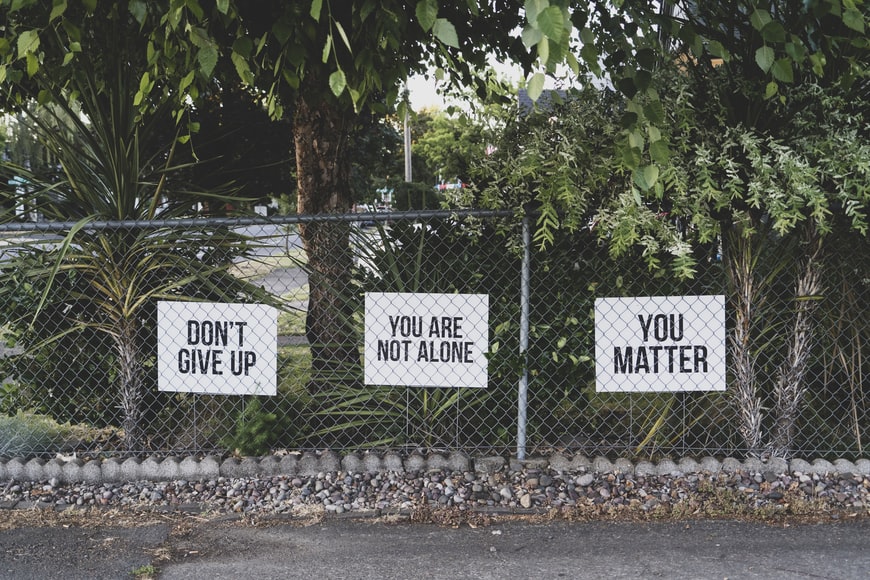WHO will launch a new Pan-European Mental Health Coalition at a high-level event on Thursday in Brussels in the presence of Queen Mathilde and Stella Kyriakides, EU Commissioner for Health and Food Safety.
According to WHO/Europe and its regional director, Dr Hans Henri P. Kluge, more than 150 million people in the WHO European Region live with a mental health condition, and only one in three people living with depression receive the care they need. Lockdowns, school closures, isolation and joblessness caused by the COVID-19 pandemic have only made things worse.
The Coalition is a new partnership dedicated to improving mental health across the WHO European Region. It will target gaps in mental health services by gathering national leaders, professionals, members of civil society, representatives of international organizations and experts to collaborate on bringing mental health out of the shadows and into the mainstream.
Key priorities for the Coalition will be to transform mental health services and integrate mental health into emergency response and recovery efforts, as well as promoting mental health and preventing mental ill health across the lifetime.
The Brussels Times asked Commissioner Kyriakides about the state of play of the mental health services in the EU member states and EU’s role in the new coalition.
Compared to the health system in general, could you please describe the mental health system in the EU member states in terms of funding and resources?
She replied that the management of health services and medical care is a responsibility of the member states, as is the allocation of the resources assigned to them, referring to the EU Treaty (article 168).
“Health care systems can differ considerably across member states, and the same can be said for the way resource mental health promotion and care services are organized,” she explained. “There is no ‘one size fits all’ model or approach, but countries can learn from each other to further improve their approaches and tackle challenges that are of particular relevance to them.”
That said, the Commission is supporting best practice implementation in the wider area of mental health, following member states’ call to prioritize this topic for good practice learning via its Steering Group for Health Promotion, Disease Prevention and Management of Non-Communicable Diseases.
The Commission also allocates grants totaling €7 million under the third Health Programme’s 2020 annual work plan.
These practices focus on depression prevention, suicide prevention and innovative mental health system reform. A project to prevent depression started this April, supporting implementation in eight countries. A new Joint Action to implement the latter two practices will start in October. This involves 21 countries, and includes WHO’s Regional Office for Europe as collaborating partner.
The Commissioner also referred to the 2018 Report on State of Health at a Glance. The report concluded that carefully chosen and well-implemented actions to promote better mental health and prevent mental ill-health can lead to significant benefits over time, for individuals and their families, for society, and for economies.
It found that many European countries were already taking action to prevent mental illness and that more than 100 interventions to promote good mental health could be identified already around that time across the EU and EFTA countries.
However, already prior to the COVID-19 pandemic, the state of mental health of the population in Europe was a cause for concern, according to the Commission. A dedicated chapter in the report highlighted that mental health problems affect about 84 million people across the EU. The total costs of mental ill health are estimated at more than 4% of GDP or €600 billion across the member states.
Measures to improve mental health include prevention, treatment and rehabilitation. In your view, do patients in the member states get sufficient support for rehabilitation after discharge from hospitals?
“Again, it is important to keep in mind the differences between countries as regards mental health services, and in this case also social support and return-to-work services,” the Commissioner replied.
“Your question zooms in on those people whose mental health problems are so severe that they require in-patient treatment. But for the majority of patients such hospital admission is not needed, and also not the preferred option.”
“Modernization of mental health services has seen service provision moving away from large institutions, and towards services provided in the community, much closer to home and in so-called ambulant settings.”
She added that the Commission’s new Joint Action will build on a Belgian reform to strengthen client-centered community-based services. It will transfer and pilot the implementation of elements of that exemplary reform in 11 other countries.
“Meanwhile of course people recovering from episodes of mental ill-health do need access to timely and good quality rehabilitation services, also to enable them to go back to work. It is important to adopt a comprehensive approach to mental health across the spectrum: in prevention, treatment, care, and recovery.”
What will the Commission's role be in the Coalition? Has the Commission already any concrete measures in mind? Will it earmark funding to the Coalition?
“The collaboration between WHO’s Regional Office for Europe and the Commission is positive and productive,” she replied and referred to the Office’s contribution to the high-level event on the mental health impact of the pandemic that the Commission hosted in May this year. WHO and the Greek government hosted also a summit on the same topic in July.
“The Commission has an observing role at the meetings of WHO’s Technical Advisory Group on the same subject. This group has meanwhile met four times, and I we understand there will be close link between this group and the new Coalition. The WHO will also be a collaboration partner in our new Joint Action on Mental Health.”
M. Apelblat
The Brussels Times

